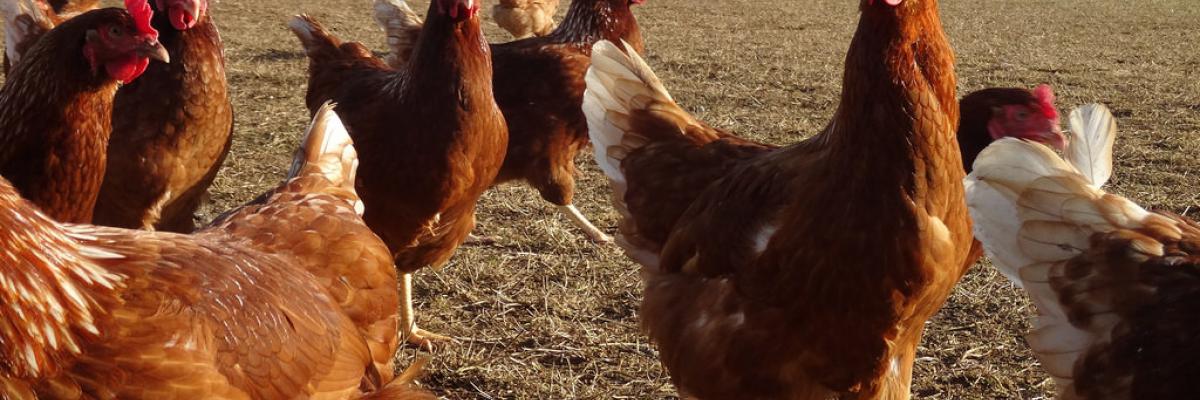

Sustainable options for producing home-grown organic poultry feed
Download the PDF
Developing home-grown or local organic feed is becoming increasingly important for poultry producers in the light of fluctuating global markets, increasing costs and the need to meet organic regulations. This factsheet, created by Farming Connect, considers some of the options for growing your own poultry feed, as identified through research that was carried out for the Better Organic Business Links project (managed by Organic Centre Wales). Focusing on dehulling protein crops, home-grown sunflowers and naked oats, it examines what they can provide in terms of nutritional and monetary value and ways in which poultry producers could go about providing them. It sets out some of the challenges and considerations for producers in relation to marketing and production. Whilst focused on Wales, it has wider UK relevance.
- Poultry rations are heavily dependent on imported ingredients and fluctuations in global markets can create financial uncertainty and potentially high costs. Organic regulations are also driving a need to focus on farm-sourced or local feed.
- Increasing your use of home-grown proteins could help protect you against potential future rises in feed prices.
- Removing the hulls from home-grown protein crops such as peas and beans can increase the concentration of key nutrients, remove ‘anti-nutritionals’ concentrated in the seed hulls, and substantially increase the concentration of the important amino acids lysine and methionine. This can improve the financial value of the crops.
- On-farm trials carried out in Wales indicated that high energy crops could be successfully grown and incorporated in the ration when combined with a high protein ingredient such as dehulled beans. However it would be important to consider potential detrimental effects of weather on crops and post harvesting issues in relation to crimping and storage.
- Naked oats have high potential as poultry feed because of their high oil content and proportionately higher levels of methionine and lysine.
- The factsheet emphasises the necessity of overcoming some of the technical and supply chain related challenges; such as access to equipment, on-farm mixing and milling facilities, and crimpers.
